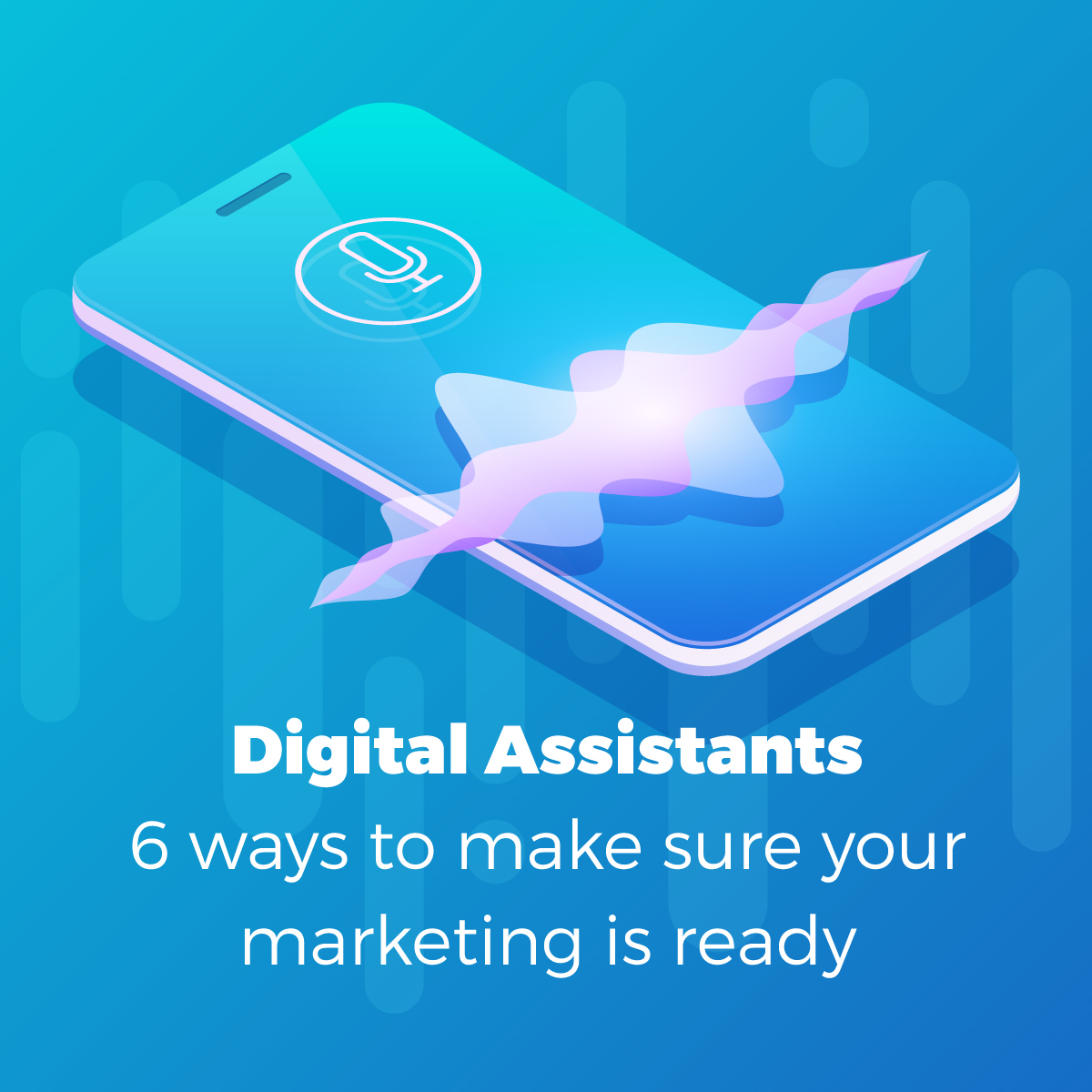
Alexa, Siri, Google Assistant, Cortana. What was once the fictional fantasies of sci-fi writers is now a reality. An assistant to play your music, Google facts or turn your lights on and off is now commonplace in homes. 3.5 billion searches a day on Google are from digital assistants and customers are making more of their access to voice enquiries. Brands need to make sure they don’t get left behind and start considering the impact of conversational marketing.
Digital Assistants and Personalisation
Over the last few years, marketers have been implementing various forms of personalised and targeted marketing, including personalised emails, paid social ads and paid searches. But although these spaces help you target consumers, you are still sharing the waves with many competitors. Digital assistants give you the chance to speak just to the one consumer. Its also a consumer who is asking a specific question for a specific answer. By analysing the specific things the consumer wants and will turn to their assistant to ask for is the key to showing up as a preferred answer.
Voice Search and Search Engine Optimisation
Digital assistants are impacting how the average consumer requests information and learns online. As well as ensuring the technology is in place so that your website can handle voice searches, marketers need to adapt their search engine optimisation to be suitable for voice search. Natural language SEO is one thing to consider. It prioritises how users want to search when they’re speaking as opposed to typing. Question words are more common when talking to a digital assistant, as that’s how real people seek out information. People are more likely to ask ‘Where is my nearest digital marketing agency’ rather than ‘nearest digital marketing agency to me’. To adapt to this way of searching, businesses can change their content around to a question and answer format to be more likely to be picked up by digital assistants.
Long tail keywords are also very important, as the specificity of questions will be more common. People will be more likely to ask about times, prices, and locations where they wouldn’t bother typing it out.

Change The Way You Write Content
As well as restructuring your content to a more Q&A formait’sits important to look at the way you write your content. Don’t write content in too much corporate speak or too business-like. Instead, write in a more natural and conversational voice. The more your content is written how real people really speak, the more likely you will be picked up when real people ask real questions.
Their Own Marketing Channel
Technology moves quickly. It can be tempting to move too quickly and apply the same strategy to digital assistants as other channels. Just as you wouldn’t use Twitter and Facebook in the same way, digital assistant needs to be treated as a channel in its own right. That means specific strategy, specific KPI’s and its own reporting.
Chatbots
By providing immediate customer interaction on your website through chatbots, you can allow addressing what the consumer wants straight away. Adding chatbots with more personality improves their experience further and makes it feel less like talking to a robot. But it’s not just the usual chat feature over messaging that we have seen before. Technology advances mean that soon we will be able to utilise more speech based chatbots. Now’s the time to invest in this sort of technology – artificial intelligence and audio speech based chatbots are expected to account for the largest market share in the future.
Stay In Control
With the hyper-digital world we live in, it would be easy to think that marketing through digital assistants will run itself. There are many ways you can change your marketing strategy to adapt to this new technology but don’t stop there. Keep diving into the data, speak to customers and keep learning what drives people to your brand. Know what their pain points are and create content that solves their problem. Also, make sure it’s easily identifiable by digital assistants. Just as in traditional marketing, knowing the customer is key and will make you more likely to be picked up as the digital assistants choice.